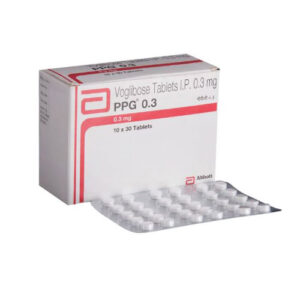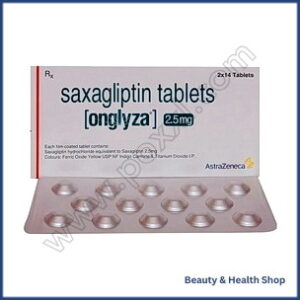ADDICTION
ALCOHOL DEPENDENCE
QUIT SMOKING
ALLERGY
ANTI FUNGAL
FUNGAL INFECTION
FUNGAL NAIL INFECTIONS
ANTI-REJECTION DRUGS
ANTI WORM
ANTIBIOTIC
BACTERIAL INFECTIONS
ARTHRITIS
GOUT
OSTEOARTHRITIS
RHEUMATOID ARTHRITIS
BLOOD
LOW PLATELET COUNT
THROMBOPHLEBITIS
VARICOSE VEINS
COLON
ANAL FISSURE
PILES
ULCERATIVE COLITIS
DIABETES CARE
DIABETES INSIPIDUS
DIABETES TYPE
DIABETIC FOOT ULCERS
GLUCOSE MONITOR
EYES/EAR CARE
DRY EYES
EYE CARE
EYE EXAMINATION
EYE INFECTION
EYE LASHES
EYE PAIN
GLAUCOMA
OCULAR HYPERTENSION
UVEITIS
FEVER CARE
MALARIA
RHEUMATIC FEVER
TYPHOID FEVER
GASTROINTESTINAL
ACIDITY
CONSTIPATION
CROHN'S DISEASE
DIARRHOEA
GALLBLADDER STONES
INTESTINAL ULCERS
IRRITABLE BOWEL SYNDROME
MOTION SICKNESS
NAUSEA
Januvia (Sitagliptin)
Januvia 25 mg (Sitagliptin)
Januvia 50 mg (Sitagliptin)
Januvia 100 mg (Sitagliptin)
| Active Ingredient (Generic Name): | Sitagliptin |
|---|---|
| Indication: | Diabetes Type 2 |
| Manufacturer | MSD Pharmaceuticals India Pvt. Ltd. |
| Packaging: | 7 tablets in one strip |
From: $93.00
If you’re seeking information on Januvia (Sitagliptin), a medication for type 2 diabetes, it belongs to the DPP-4 inhibitors category. By inhibiting the DPP-4 enzyme, it helps manage blood glucose levels by increasing insulin release and reducing glucagon secretion. Your healthcare provider will specify the dosage, which can be used alone or with other antidiabetic drugs as part of a thorough diabetes treatment plan involving diet and exercise. Januvia also shows promise in managing cardiovascular conditions. Learn more about its mechanisms, benefits, precautions, and proper use to maximize its effectiveness.
Start here by understanding how Januvia (Sitagliptin) works to manage blood sugar levels effectively. Januvia belongs to a class of medications called dipeptidyl peptidase-4 (DPP-4) inhibitors. When you consume food, your body breaks down carbohydrates into sugar (glucose). This glucose enters your bloodstream, causing your blood sugar levels to rise. Januvia works by targeting an enzyme called DPP-4, which normally breaks down incretin hormones. These hormones help to regulate blood sugar by stimulating the pancreas to produce insulin and reducing the liver’s glucose production. By inhibiting DPP-4, Januvia allows the incretin hormones to remain active for longer periods, leading to increased insulin release and decreased glucagon secretion. This process helps to lower blood sugar levels after meals and throughout the day, effectively managing diabetes. Understanding how Januvia functions in your body is essential for comprehending its role in controlling blood sugar levels and improving overall health.
Why is this medication prescribed?
To comprehend why Januvia (Sitagliptin) is prescribed, it is crucial to acknowledge its role in managing blood sugar levels effectively by targeting the enzyme DPP-4. Januvia is primarily prescribed for individuals with type 2 diabetes to aid in controlling their blood glucose levels. This medication functions by increasing the levels of incretin hormones in the body, which are responsible for triggering the release of insulin and reducing the production of glucagon. By inhibiting the DPP-4 enzyme, Januvia prolongs the action of these incretin hormones, leading to improved blood sugar control after meals.
Furthermore, Januvia is often suggested when other oral medications for diabetes management have not been effective on their own. It can be used alone or in combination with other antidiabetic medications to achieve optimal blood sugar levels in patients with type 2 diabetes. Your healthcare provider will determine if Januvia is suitable for you based on your individual medical condition and treatment needs.
How should this medicine be used?
When using Januvia (Sitagliptin), follow the prescribed dosage instructions provided by your healthcare provider to effectively manage your blood sugar levels. This medication is usually taken by mouth once a day, with or without food. It is important to take Januvia regularly at the same time each day to maximize its benefits. If you forget to take a dose, take it as soon as you remember. However, if it is almost time for your next dose, skip the missed dose and continue with your regular dosing schedule. Do not take a double dose to make up for a missed one.
It is essential not to adjust your dose or stop taking Januvia without consulting your healthcare provider first. Your doctor may need to monitor your blood sugar levels regularly to assess the medication’s effectiveness and make any necessary dosage adjustments. Remember, Januvia is just one part of a complete treatment plan that may include diet, exercise, and other medications prescribed by your healthcare provider to manage your condition effectively.
Other uses for this medicine
Exploring additional benefits of Januvia may include its potential in managing certain cardiovascular conditions. While Januvia is primarily used to treat type 2 diabetes by regulating blood sugar levels, some studies suggest that it may also have beneficial effects on the cardiovascular system. Research has indicated that Januvia could potentially reduce the risk of cardiovascular events in diabetic patients, such as heart attacks and strokes. This is thought to be due to its mechanism of action in increasing the levels of a hormone that helps regulate blood pressure and improve heart function.
Furthermore, Januvia may have a role in reducing inflammation in blood vessels, which is a key factor in the development of cardiovascular diseases. By decreasing inflammation, Januvia could potentially protect against conditions like atherosclerosis, where arteries become narrowed and hardened due to plaque buildup. While more research is needed to fully understand the extent of Januvia’s benefits in managing cardiovascular conditions, these findings highlight the potential for this medication to offer additional health advantages beyond diabetes management.
What special precautions should I follow?
Before beginning Januvia (Sitagliptin), it is important to check for any possible drug interactions with other medications you are currently taking. Inform your healthcare provider about all the prescription and over-the-counter drugs, vitamins, and supplements you are using to prevent any adverse effects. Taking precautions in this regard can help guarantee the safe and effective use of Januvia in managing your condition.
Check for Drug Interactions
To guarantee your safety and maximize the effectiveness of Januvia (Sitagliptin), it is essential to check for potential drug interactions before starting or changing any medications. Here are some key points to consider:
- Inform your healthcare provider about all the medications you are currently taking, including over-the-counter drugs and herbal supplements.
- Ask your doctor or pharmacist to review the potential interactions between Januvia and any new medications.
- Be cautious with drugs that affect your kidney function, as they may interact with Januvia.
- Monitor for symptoms like dizziness, weakness, or unusual changes when starting a new medication while on Januvia.
Following these steps can help prevent harmful interactions and ensure the safe use of Januvia.
What special dietary instructions should I follow?
Consider adjusting your diet to include healthier food choices while taking Januvia (Sitagliptin) to better manage your blood sugar levels. Maintaining a balanced and nutritious diet is essential for individuals managing diabetes. Focus on incorporating plenty of fruits, vegetables, whole grains, and lean proteins into your meals. Limit your intake of sugary beverages, processed foods, and high-fat items. Opt for complex carbohydrates like brown rice and whole wheat bread over refined options. Be mindful of portion sizes to help regulate your blood sugar levels effectively. Additionally, try to spread your meals throughout the day to prevent large spikes or drops in blood glucose. It’s vital to monitor your carbohydrate intake as they directly impact your blood sugar levels. Consult with a healthcare provider or a dietitian to create a personalized meal plan that aligns with your dietary needs and complements your Januvia treatment for the best diabetes management.
What should I do if I forget a dose?
If you forget a dose of Januvia (Sitagliptin), promptly take it when you remember within a reasonable timeframe. Try not to take a double dose to make up for the missed one. If it is almost time for your next scheduled dose, skip the missed one and continue with your regular dosing schedule. It is important to maintain consistency in taking this medication to achieve the best results.
If you frequently forget doses, consider setting reminders on your phone or placing the medication in a spot where you will see it regularly. Establishing a routine can help you remember to take Januvia at the same time every day. If you have trouble remembering, you can also talk to your healthcare provider about strategies to help you stay on track with your medication schedule.
Taking Januvia as prescribed is essential for managing your condition effectively. If you have any concerns or questions about missed doses or your treatment plan, do not hesitate to consult your healthcare provider for guidance.
What side effects can this medication cause?
Januvia (Sitagliptin) may cause some side effects that require monitoring. Serious symptoms like unusual skin changes should prompt you to contact your doctor immediately. Make sure to be aware of any potential side effects and seek medical advice if needed.
Monitor for Unusual Skin Changes
What skin changes should you monitor for while taking Januvia (Sitagliptin)? It is important to be aware of any unusual skin reactions that may occur while using Januvia. Some side effects related to the skin that you should watch out for include:
- Rash
- Itching
- Hives
- Swelling
If you notice any of these skin changes, it is essential to inform your healthcare provider promptly. Monitoring for these symptoms can help in early detection and management of any potential skin reactions associated with Januvia. Remember to seek medical attention if you experience any concerning skin changes while taking this medication.
Some side effects can be serious. If you experience any of the following symptoms, call your doctor immediately:
Serious side effects of Januvia (Sitagliptin) may include severe joint pain and pancreatitis, warranting immediate medical attention. If you experience any of the following symptoms, call your doctor promptly:
- Severe joint pain
- Signs of pancreatitis such as severe abdominal pain that may radiate to your back
- Allergic reactions like rash, itching, swelling, severe dizziness, or trouble breathing
- Symptoms of heart failure such as unusual tiredness, swelling ankles/feet, unusual shortness of breath
It’s essential to seek medical help if you encounter any of these severe side effects while taking Januvia. Your doctor can evaluate your symptoms and provide the necessary care to address these potentially dangerous conditions.
What should I know about the storage and disposal of this medication?
When storing Januvia, make sure to keep it at room temperature and away from moisture and heat. Store the medication in its original container, tightly closed, and out of reach of children and pets. Avoid exposing Januvia to extreme temperatures or direct sunlight. Check the expiration date on the packaging and do not use the medication if it is expired.
If you no longer need Januvia or if it has expired, it is essential to dispose of it properly. Do not flush the medication down the toilet or pour it down the drain unless instructed to do so. Instead, consult with your pharmacist or local waste disposal company on the correct way to dispose of Januvia. This helps prevent environmental contamination and ensures the safe disposal of the medication. Following these storage and disposal guidelines will help maintain the effectiveness of Januvia and reduce the risk of accidental ingestion or misuse.
In case of an emergency/overdose
If an emergency arises or if you suspect an overdose of Januvia, take immediate action by seeking medical assistance. An overdose of Januvia can lead to symptoms such as hypoglycemia (low blood sugar), which can be dangerous if not treated promptly. Contact emergency services or visit the nearest hospital for evaluation and management.
When seeking medical help, be prepared to provide information about the amount of Januvia ingested, the time of ingestion, and any symptoms experienced. The healthcare provider will assess the situation and may administer treatments to address the overdose effects, such as monitoring blood sugar levels and providing supportive care.
It is important not to ignore signs of a potential overdose or emergency situation. Prompt medical intervention can help prevent complications and safeguard your safety. Remember, it is always better to err on the side of caution and seek professional medical assistance when in doubt about a possible Januvia overdose.
What other information should I know?
Here’s what you need to know about Januvia – Sitagliptin.
Januvia (Sitagliptin) may cause side effects such as sore throat, runny nose, and upper respiratory tract infection. Inform your healthcare provider about any changes in your health while taking this medication. Be cautious while driving or operating machinery, as Januvia can cause dizziness. Moreover, alcohol consumption may worsen certain side effects, so it’s advisable to limit alcohol intake. It’s vital to follow your doctor’s instructions meticulously and not adjust the dosage without consulting them first. Regular blood sugar monitoring is necessary to track your progress and ensure the medication is working effectively. Inform healthcare professionals about all the medications and supplements you are taking to prevent potential interactions. If you are pregnant, planning to become pregnant, or breastfeeding, discuss the risks and benefits of Januvia with your healthcare provider. Remember to store Januvia at room temperature, away from moisture and heat, following the specific storage instructions provided.
Brand names
You can find Januvia, known as Sitagliptin, under different brand names in various countries around the world. In different regions, pharmaceutical companies market this medication under different names. Below is a table showcasing some of the brand names used for Sitagliptin in different countries:
| Country | Brand Name |
|---|---|
| United States | Januvia |
| Canada | Januvia |
| United Kingdom | Januvia |
| Australia | Januvia |
| Germany | Xelevia |
| France | Januvia |
These brand names may vary based on the regulations and marketing strategies in each country. It is essential to be mindful of these alternate names when seeking or discussing this medication, especially if you are traveling or communicating with individuals from different parts of the world. Always make sure you are using the correct brand name to avoid any confusion or errors in medication administration.
Purchase Options for Januvia
When considering purchasing Januvia, you may explore various options available to obtain this medication. Januvia, a prescription medication used to manage blood sugar levels in individuals with type 2 diabetes, can be obtained through different channels. One common option is purchasing Januvia at your local pharmacy with a valid prescription from your healthcare provider. Pharmacies may offer the medication at varying prices, so it could be beneficial to compare costs at different locations. Another option is utilizing online pharmacies that are licensed and reputable. These online platforms can provide convenience and sometimes offer discounts or home delivery services. Additionally, some healthcare providers may have samples of Januvia that they can provide to patients to try before committing to a full prescription. It’s crucial to obtain Januvia from a reliable source to guarantee its authenticity and effectiveness in managing your condition.
To summarise
In wrapping up the discussion, let’s consolidate the key points related to obtaining Januvia for managing your type 2 diabetes effectively. Januvia, also known as Sitagliptin, is a medication used to control blood sugar levels in individuals with type 2 diabetes. To acquire Januvia, you can consult with your healthcare provider, who will evaluate your condition and determine if Januvia is suitable for you. Once prescribed, you can obtain Januvia from pharmacies, both physical and online, with a valid prescription. It is essential to follow the dosage instructions provided by your healthcare provider to guarantee the medication’s effectiveness and minimize potential side effects. Additionally, you may explore financial assistance programs or insurance coverage options to help with the cost of Januvia, as it can be expensive. Regular monitoring of your blood sugar levels and periodic check-ups with your healthcare provider are vital to assess the medication’s efficacy and make any necessary adjustments to your treatment plan. By staying informed and actively engaged in your diabetes management, you can effectively incorporate Januvia into your treatment regimen.










